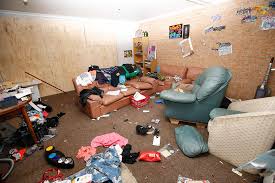When tenants move into a new property, it’s most likely very clean. Tenants have a right to receive a clean and hygienic property, but they must also ensure the standard is maintained for the remainder of their tenancy.
Most people don’t do deep cleaning on a weekly basis and that counts double in the months before their moving date. However, when moving out, tenants need to make sure the property is just as clean as it was when they first moved in. Since moving is an already tense, both tenants and landlords turn to the services industry to fill in that role.
The Deposit Protection Scheme confirms more than half of deposit disputes (56%) are the result of insufficient cleaning. This makes it the most common cause for deposit disputes.

If a tenant has not performed an end of tenancy cleaning before they’ve moved out, the landlord or agent will hire a company to do the cleaning, while discounting the bill from the deposit.
Because tenants have deposited a lot of money, it’s in the best interest of tenants to maintain the property at all times. The two inventory checks – when they move in and out – will benchmark the condition of the property. This is the most reliable evidence for how tenants have affected the property’s condition during their occupation.
Some landlords hire end of tenancy cleaning companies before they let tenants move in. This sets a very high standard that will be expected when the tenants move out. This will be reflected in the move in inventory report, including high detail photos of the condition. Also, the agent or landlord should provide the tenant with a copy of the receipt that the cleaning company has issued them. If you are a tenant and you plan on cleaning yourself, make sure you put in that extra work and start in advance, so you have enough time to match the quality benchmark.
Tenants’ vacating a rented property in an inadequate state of cleanliness is one of the main reasons for deposit reductions
